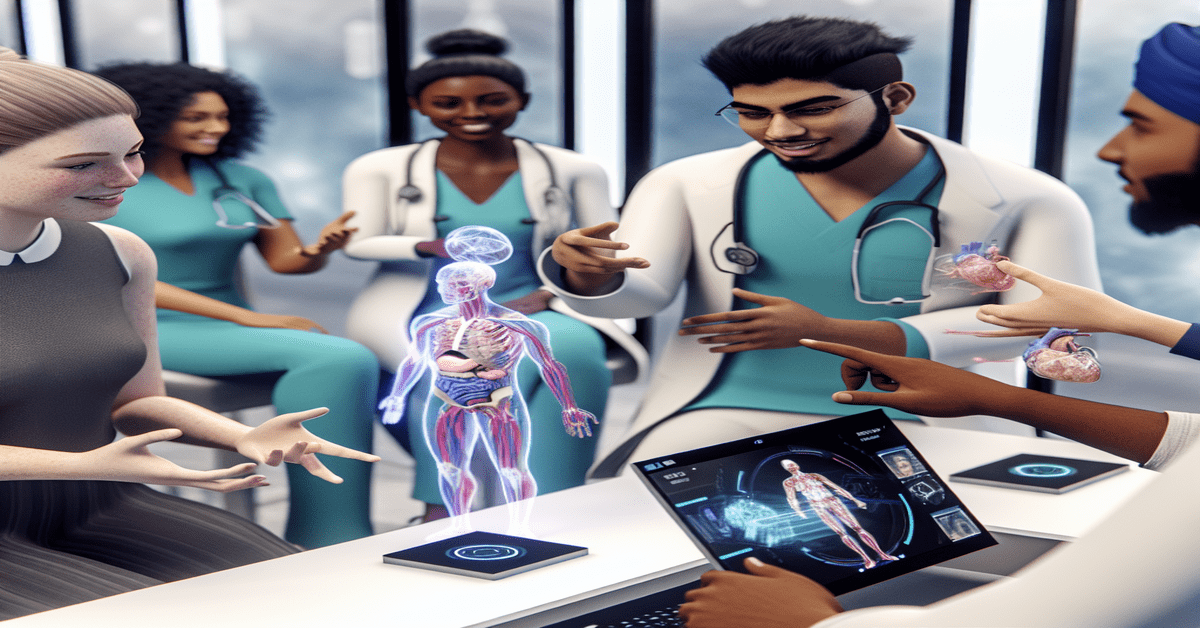Revolutionizing Medical Education: The Power of Analytics in Transforming Curricula and Elevating Student Performance
In the rapidly evolving landscape of medical education, cutting-edge analytics are emerging as a game-changer, revolutionizing the way we design curricula, support students, and assess performance. As the healthcare industry continues to embrace data-driven approaches, it is crucial for medical educators to harness the power of analytics to prepare the next generation of healthcare professionals. In this blog post, we will explore how analytics are transforming medical education, the benefits they bring, and the future directions of this exciting field.
Data-Driven Curriculum Adaptation: Tailoring Learning to Student Needs
One of the most significant impacts of analytics in medical education is the ability to adapt curricula based on real-time learner performance data. By analyzing patterns in student interactions with course materials and assessments, institutions can identify knowledge gaps, optimize learning pathways, and refine teaching strategies to maximize efficacy. This data-driven approach ensures that curricula remain relevant, engaging, and aligned with the evolving needs of students and the healthcare industry.
A study published in the Journal of Medical Internet Research highlights the potential of learning analytics in medical education, demonstrating how data-driven insights can inform curriculum design and improve student outcomes. By leveraging vast amounts of learner data, educators can make informed decisions, adapt teaching methods, and create personalized learning experiences that cater to individual student needs.
Personalized Learning and Support: Empowering Students to Succeed
Another transformative aspect of analytics in medical education is the ability to identify at-risk students early in their studies and provide targeted support. By tracking student progress and engagement, analytics tools can flag potential issues and trigger personalized interventions. These interventions may include targeted feedback, adaptive learning modules, individualized coaching, or other support mechanisms designed to help students overcome challenges and achieve their full potential.
Research published in the Journal of Medical Education underscores the effectiveness of personalized learning and support in improving academic outcomes and reducing attrition rates. By leveraging analytics to provide timely and tailored support, medical schools can empower students to succeed, even in the face of complex and demanding curricula.
Enhanced Assessment and Feedback: A Holistic View of Student Competencies
Analytics are also revolutionizing the way we assess student performance and provide feedback in medical education. Traditional assessment methods often fail to capture the full range of student competencies, focusing primarily on knowledge retention rather than practical application. Analytics-driven assessment practices, on the other hand, enable a more holistic understanding of student abilities, providing real-time feedback and facilitating longitudinal progress monitoring.
A study published in Medical Teacher explores the potential of analytics in enhancing formative assessment practices, highlighting how data-driven insights can support personalized feedback and enable early intervention when necessary. By leveraging analytics, educators can move beyond traditional metrics and gain a more comprehensive view of student competencies, ultimately leading to better-prepared healthcare professionals.
Ethical Considerations and Future Directions: Balancing Innovation and Responsibility
As we embrace the power of analytics in medical education, it is crucial to navigate the ethical and practical considerations that arise. Data privacy, informed consent, and the responsible use of student data are paramount concerns that must be addressed to ensure the trust and well-being of learners. Medical educators must strike a delicate balance between leveraging data-driven insights and maintaining a human-centric approach to education, ensuring that technology enhances rather than replaces the essential human elements of teaching and learning.
Looking ahead, the future of analytics in medical education is filled with exciting possibilities. Emerging trends such as artificial intelligence, holographic teaching, global collaboration platforms, and even quantum computing promise to further enhance simulation and learning experiences. These innovations have the potential to revolutionize how we train healthcare professionals, enabling them to acquire the skills and knowledge needed to thrive in an increasingly complex and technology-driven healthcare landscape.
A book titled “Medical Education Online: Technologies, Applications, and Future Directions” explores the cutting-edge advancements shaping the future of medical education, including the role of analytics and AI in transforming learning experiences. As we embrace these innovations, it is essential to do so responsibly, ensuring that they align with our values and serve the best interests of students and patients alike.
In conclusion, cutting-edge analytics are transforming medical curricula, enabling data-driven, personalized, and adaptive learning experiences that elevate student performance and prepare them for the challenges of modern healthcare. By harnessing the power of analytics, medical educators can design more effective curricula, provide targeted support, and assess student competencies holistically. As we navigate the ethical considerations and embrace future innovations, we have the opportunity to revolutionize medical education and shape a generation of healthcare professionals equipped to meet the evolving needs of patients and society.
#MedEd #LearningAnalytics #Personalized Learning #DataDrivenEducation
Join the conversation and share your thoughts on how analytics are transforming medical education. What experiences have you had with data-driven approaches to learning? What ethical considerations do you think are most important as we integrate analytics into medical curricula? Let’s engage in a meaningful dialogue and explore the future of medical education together.
-> Original article and inspiration provided by ReviewAgent.ai
-> Connect with one of our AI Strategists today at ReviewAgent.ai


